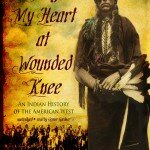Searching for whitopia: An improbable journey to the heart of white America
Culture, The Arts — By Leslie Shortlidge on December 16, 2009 at 11:36 amVerily I say unto you, it is easier for a person of color to enter into the picnic grounds of the Aryan nation than it is for him to talk to the residents of a co-op apartment in the Manhattan neighborhood of Carnegie Hill. It’s true says Rich Benjamin, author of Searching for Whitopia: An Improbably Journey to the Heart of White America, who did both.
What defines a Whitopia? Benjamin defines a Whitopia as a county with at least 90 percent non-Hispanic white residents, a total population growth of at least 10% after 2000, and at least 75% of that growth accounted for by non-Hispanic whites. Benjamin differentiates between “extreme Whitopias,” “Whitopian counties, and “Whitopian metropolitan/micropolitan areas” in the appendix provided in the back of the book.

Searching for Whitopia: An Improbably Journey to the Heart of White America By Rich Benjamin Hyperion (New York), 2009. 354 pages.
What creates a Whitopia is a thornier question. After all, explains Benjamin, “most Whitopians I encounter don’t purposefully practice racial discrimination and don’t give segregation much thought. Rather, they engage in a form of ‘opportunity mapping.’” This insight, along with many others in the book, provide a clearer picture of the problem, most pointedly addressed midway through Searching for Whitopia, in the chapter “The Geography of Homegeneity; or, What’s Race Got to Do With it?” There’s “racism without racists,” explains Benjamin, as segregation has been “abetted by Uncle Sam, by local governments, by business interests, and by individuals.”
Benjamin spent three months living in each of three “Whitopias” in Utah, Idaho, and Georgia. During his Idaho sojourn, he also spent a weekend at a religious retreat near Sandpoint (famous now as the home of ex-LAPD officer Mark Furman) in what Benjamin terms the Aryan Beltway. As the only non-Aryan American at the Christian Identity weekend, he was surprised to be welcomed by the teenagers as soon as he displayed an interest in listening to them. However, he was not at all surprised at being given a warning glare by a woman seated next to him during a pastor’s exhortations to “turn to your right and put your arm around your neighbor in brotherhood.” Some of the attendees at the weekend were eager to explain to the author that they have nothing against black people, but do believe in the separation of the races and the superiorities of whites. “Anglo-Saxon Christians are the apple of His eye,” said one conference attendee, referring to God (Side note: it is not surprising that God’s opinions mirror those of the speaker, if you consider this recent study).
Benjamin also did research in Manhattan, where he posed as a prospective tenant for an apartment in an exclusive neighborhood, exclusive because it chooses to be so. The dominant living arrangement in Carnegie Hill (near the Metropolitan Museum of Art, to name a landmark, and on Park Avenue, to name another), is the co-op. Co-ops are run by a co-op boards, “a home owner’s association on steroids.” While there is no overt racial animus (Benjamin received a covert vote of approval from a black resident met in an elevator while he is “apartment shopping”), the astounding thicket of cultural codes and signifiers that must be negotiated are exhausting to contemplate and elusive to pin down. Indeed, no residents of Jacquelyn Kennedy Onassis’ old building would grant him an interview, except for one person who kept the conversation to 10 seconds, tops.
But Benjamin spent the bulk of his time living in American Western Whitopia neighborhoods, where there are an abundance of natural amenities, playgrounds, clean air, and family and child-friendly activities and surroundings. He learned to love golf (as much of a surprise to him as it is the non-golfing reader), socialized, fished, was welcomed into people’s homes and never endured a pointed word— although he did attend a youth group meeting where a speaker managed to make a comparison between dogs and black people by way of a fleeting (and odd) reference to John Howard Griffin’s 1961 book, Black Like Me. Benjamin never belittles or speaks ill of his subjects, and respects their politeness and the reciprocity of hospitality. Invited dinner guests in Whitopia do not critique the sustainability or the fat content of the food he serves, unlike guests in Manhattan or San Francisco. The white people he interviews and befriends seem to like him as well, and never express any awareness of being themselves part of the problem or the solution.
The final chapter and the conclusion include many quotes from Barack Obama’s The Audacity of Hope: Thoughts on Reclaiming the American Dream, which serve as both commentary and support to Benjamin’s own work.
All in all, Searching for Whitopia is a satisfying read, with reasons offered at the end about who is hurt by our “class Balkinization,” and why. It’s a relief to read someone calling out the appropriation of the language of the civil rights struggle and the women’s movement as some whites do, blowing the “rights” trumpet while disregarding the realities of segregation and racism, for example. Benjamin even grapples with statistics that claim diverse neighborhoods breed less social awareness and involvement. He takes Whitopians to task who “willfully buck the American social contract” and who call out the loudest against the federal government, a government that supports states like Idaho that gain 44 cents to the dollar in taxes while “immigrant gateway” states like New York lose 21 cents on the dollar. Who, as Aretha Franklin once sang, is zooming whom? However, other than the usual calls for “cultural transformation and government action” (Obama), a new way forward is not provided, other than a new default resulting in a change in demographics by 2042 which some of us will see, and some of us won’t.
Currently, Rich Benjamin is Senior Fellow at Demos, a nonpartisan, multi-issue think tank. His social and political commentary is featured in newspapers nationwide, on NPR and Fox Radio, in the blogosphere, and in many scholarly venues.
Tags: book review, rich benjamin, Whitopia


 Share This
Share This Tweet This
Tweet This Digg This
Digg This Save to delicious
Save to delicious Stumble it
Stumble it








 The continuing struggle for justice in Bhopal
The continuing struggle for justice in Bhopal Forgotten truths about the rawness of survival
Forgotten truths about the rawness of survival Dee Brown’s book on its 40th anniversary
Dee Brown’s book on its 40th anniversary Telling the story of history
Telling the story of history Controversy outshine performance
Controversy outshine performance